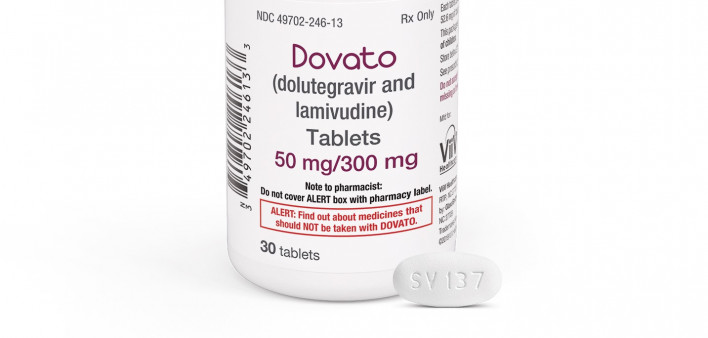Those who switch from a stable three- or four-drug antiretroviral regimen to ViiV Healthcare’s two-drug regimen Dovato (dolutegravir/lamivudine) maintain a high rate of viral suppression after one year, aidsmap reports.
Jean van Wyk, PharmD, global medical lead at ViiV, presented findings from the Phase III TANGO study at the 10th International AIDS Society Conference on HIV Science (IAS 2019) in Mexico City.
The study enrolled 741 participants in Europe, North America, Australia and Japan who were on a stable regimen containing tenofovir alafenamide (TAF), for a median of about three years. All of them had a fully suppressed viral load. More than 90% of the participants were men, and the majority were white. The median age was 40 years old.
About 80% of the study members were taking an integrase inhibitor, 14% were taking a non-nucleoside reverse transcriptase inhibitor (NNRTI) and 8% were on a protease inhibitor.
The participants had never experienced treatment failure and had no known resistance to the two components of Dovato.
The study randomized the participants to switch to Dovato or to remain on their current regimen for 144 weeks, after which the latter group will also be switched to the two-drug regimen.
After 48 weeks, 93.2% of those who were switched to Dovato and 93.0% of those who remained on their initial regimen had a fully suppressed viral load. This meant that Dovato was comparably effective, or noninferior, to the TAF-inclusive three- or four-drug regimens.
Meanwhile, a pair of Phase III trials of Dovato, called GEMINI 1 and 2, were also presented in Mexico City. They included first-timers to HIV treatment who were randomized to start Dovato or a three-drug regimen of Tivicay (dolutegravir) plus Truvada (tenofovir disoproxil fumarate/emtricitabine). The studies similarly found that Dovato had a noninferior efficacy to the three-drug regimen after 48 weeks, a finding that held true at week 96 of the trials.
In TANGO, no participants in the Dovato group and two people in the TAF-based regimen group experienced virologic failure.
The regimens studied proved safe and well tolerated. Six percent of those in the Dovato group and less than 1% of the TAF group experienced Grade 2 to 5 (moderate to severe) drug-related adverse health events. Thirteen (4%) of those who were switched to Dovato and two (1%) of those who remained on their original regimen dropped out of the study because of adverse health events, including a respective nine (2%) and one (less than 1%) of each group who withdrew because of drug-related health events.
The two participant groups experienced similarly small changes in markers of kidney function, bone density and lipid levels. One percent of those in the Dovato group and 2% of those in the TAF group reported weight gain as an adverse health event.
To read the aidsmap article, click here.
To read the conference abstract, click here.







Comments
Comments